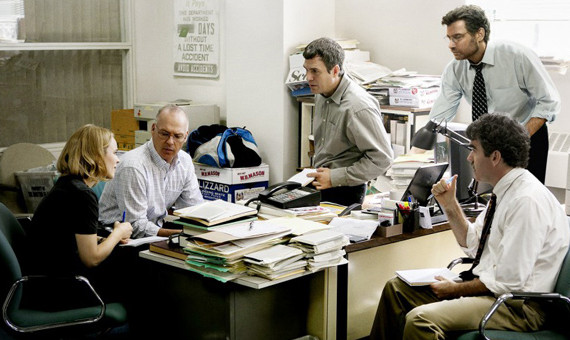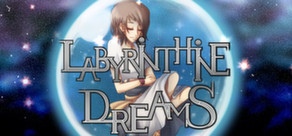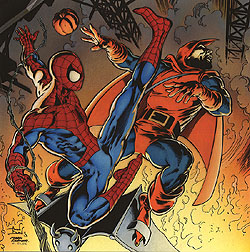A bad year for the world. A good year for movies. The connection between the two illustrates once again that difficult times can produce great art. That may feel like a small comfort but I believe it still is one. Personally, I always feel a little better when it becomes clear that there are writers and artists out there who share our passions and frustrations. This year was particularly great for that - many of the films on this list reflect the times in which they were made, providing the kind of insight and empathy that you don't usually get from the usual barrage of depressing headlines. Aside from that, there was also a nice amount of just flat-out good movies this year. Let's talk about some of them!
10. Unfriended
Since the turn of the century, there have been attempts to create an "internet horror film" - a movie with a storyline centered on internet and social media culture that would embody our cultural anxieties about the march of technology. The numerous movies made with this goal in mind ranged from disappointing to downright awful until Unfriended came along. It was dismissed by most critics and genre buffs as just another cheap generic horror movie and admittedly the trailers and commercials did little to dispel that perception. Regardless, Unfriended is a clever, layered film that speaks to both the times we live in and the timeless struggles of adolescence. It fully commits to its central conceit of telling a story entirely through one teenage girl's activity on her laptop, providing exposition through internet browsers, social media posts and instant message conversations. During a group chat on Skype, a mysterious screen name shows up and begins to cause trouble. Over the course of this real-time story, characters who initially conform to the usual teen stereotypes (good girl, bad girl, nerd, jock, etc) reveal secrets and sides of themselves that the audience doesn't expect. It's a solid horror film, but what's most impressive is how honest the script is about the gossip, humiliations and cruel betrayals of high school, all amplified through the social media that is now being used to torment the perpetrators.
9. Room
Brie Larson has been doing great work for a few years now, staying just under the radar. This year, it was Room that got everyone's attention and what a role - she plays a woman who has been held captive in a shed for seven years. She's even given birth to her captor's child during her imprisonment. Now five years old, the boy (Jacob Tremblay) has never seen the outside world other than on television, which he believes is all fake. When the imprisonment ends (in an amazingly tense scene), the more complicated second half begins as Joy struggles with introducing her son to the real world, dealing with intrusive journalists and her own lingering trauma. Larson gives a vivid portrait of a woman worn down by abuse but still desperate to be the best parent she can and the 7-year-old Tremblay acts way beyond his years. The emotional and oddly heartwarming script turns the stuff of lurid evening news stories into a surprisingly universal story of dealing with change and moving on from hard times.
8. White God
"Never work with children or animals" is an old showbiz adage and now, thanks to CGI, directors don't have to even try. Growing up with films like The Adventures of Milo and Otis and Homeward Bound, I remember going to see the live-action remake of 101 Dalmatians and feeling bitterly disappointed when I realized that the most memorable dog antics were performed by digital stand-ins. If I wanted to see animated animals, I'd go back to the original movie! It's been a pet peeve of mine with animal-themed movies ever since, but the dogs in White God are the real deal. At this point, I should clarify that this allegorical Hungarian epic is not for kids and doesn't shy away from what the life of a stray dog is like in a big city. Hagen, the lead dog, finds himself on the street and the cruelty of the outside world turns him from a wimpy lapdog into a lethal beast. It all culminates in a brilliant sequence where nearly 300 real-life dogs wreak havoc on the city. Majestic, humorous and a little scary, director Kornél Mundruczó set the record for the amount of dogs filmed in a single scene. The whole film is a powerful experience with an important message for those who run this cruel world we live in - one thing humans and dogs have in common is that we can only be pushed so far before we push back...hard.
7. Metalhead
I can hear it now. "Rob only put this one the list because it's about metal." Nope, that's not how it works. Sure, the reason this tiny Icelandic film caught my attention was because it's about metal, but it made the list because it's a moving and sensitive story about grief and how music can become part of your identity in difficult times. After her brother dies in a senseless farming accident, young Hera (Thora Helga) latches on to the heavy music that he loved. The movie takes place in the mid-1990s, when early black metal bands burned down a series of churches in nearby Norway, an act of revenge for the old Viking beliefs that was interpreted by the media as Satanism. Needless to say, Hera walking around in demonic-looking face paint in a microscopic town where everyone goes to the same Catholic church causes a bit of an uproar. Director Ragnar Bragason beautifully uses the stark Iceland landscape to complement the storyline and while any sort of music can become meaningful to listeners, metal was the only choice for this particular story. Metal is defined by its sincerity about topics most people don't want to talk about, especially loss and death, helping Hera to deal with her trauma while her neighbors are ready for the family to be over it. The movie is just as sincere...and features the most heartwarming use of Megadeth you're ever likely to see.
6. Creed
There wasn't much demand for yet another movie with Rocky Balboa in it, but thankfully this film came along in a year where revisiting old stories yielded quite a bit of success. Like The Force Awakens and Mad Max: Fury Road, Creed does justice to its acclaimed forebears while reworking the classic story for a new era. Michael B. Jordan cuts a heroic figure as Adonis Creed, the out of wedlock son of Apollo Creed, Rocky's friend and rival. Hoping to make the cut as a boxer, Adonis seeks out his "uncle" (Sylvester Stallone, who may not have had the most illustrious career but he knows this character cold) and once the sports media learns his last name, he's pitted against an intimidating opponent. Anyone who's seen the other Rocky movies will be able to guess most of the plot points, but director Ryan Coogler (who worked with Jordan in the excellent Fruitvale Station) stages everything with considerable skill. Case in point - the already famous boxing match in the middle of the film that's depicted in one single moving shot. It's the best film in the series since the first one and proves that a simple underdog story is still irresistible when done this well. Try not to tear up when Rocky revisits the steps of the Philadelphia Art Museum.
5. Advantageous
This little-seen independent film is hard to summarize, but I'll do my best. Advantageous is a small, quiet science-fiction drama starring Jacqueline Kim as Gwen, a mother trying to secure a future for her daughter Jules. Even though her daughter has a genius-level intellect and perfect grades, getting her into college and then into a good job is considered a huge long shot in the world of this not-so-distant future. If that sounds hyperbolic, you're probably at least middle-aged and haven't witnessed crowds of top-ranked students from top-ranked schools with gigantic student loan debts desperate for even the most miserable bottom of the ladder corporate job. This is a movie about the Millennial experience, so get your stupid 'participation trophy' jokes out of your system now...and by the way, I never got one of those despite being in a lot of after-school groups. I think it's a myth. In Advantageous, the economy of things is doing fine, it's the economy of people that has collapsed. Gwen's response to this uphill battle is to take a chance on some risky new technology that could bring her enough money to get her daughter's foot in the door. Elegantly directed by Jennifer Phang, this is a smart, thoughtful movie that holds a mirror up to the audience and asks how we can possibly survive as a society that throws away the future of its youth for short-term profit.
4. It Follows
This unexpected hit was the moment that the New Wave of Horror had fully arrived. It's been slowly making its mark for most of the current decade and It Follows is a perfect demonstration of what this movement is about. Director David Robert Mitchell and his peers are out to restore the artistic credibility of horror films which has mostly been absent since the 1970s. In particular, the popular found footage subgenre has to sacrifice polish to achieve its essential verisimilitude. (For all its virtues, Unfriended is a variation on the found footage concept and by necessity is not a particularly great looking movie). With its stunning deep focus cinematography and distinctive soundtrack, It Follows is one of the most aesthetically impressive horror films in a long time. Still, such a great presentation would be wasted if the story and concept weren't able to match it. Lead character Jay (Maika Monroe) contracts a curse that spreads like a venereal disease and now finds herself pursued by a bizarre entity who takes different human forms depending on the situation. Wherever she is, the creature is slowly walking towards her. As she and her tight-knit group of friends try to maintain distance from the monster, the viewer is treated to a series of harrowing encounters and twisted imagery. The ambiguity of the antagonist has become fodder for a huge amount of think pieces - does it represent urban decay? Buried trauma? The shame of catching an STD? The inevitability of death? The director isn't saying and I suspect the movie will inspire these questions for years to come.
3. The Look of Silence
This documentary is a sequel to The Act of Killing, which was my top film of 2013 and possibly of the decade. Like its predecessor, The Look of Silence examines the Indonesian genocide of the 1960s, when hundreds of thousands of communists, public intellectuals and ethnic Chinese were slaughtered by local gangsters recruited by the government. This dark piece of history is still mostly unknown to the public (although not quite as much now thanks to The Act of Killing) and the powers that be in Indonesia remain unrepentant. This time, director Joshua Oppenheimer follows a civilian named "Adi" (a fake name, these movies are truly dangerous) whose brother was killed during the massacre. Under the pretense of administering eye exams, he confronts the retired thugs who were behind the murder. Hoping for some expression of remorse or admission of wrongdoing, Adi somehow manages to keep a straight face when the perpetrators respond with callous nonsense and chide him for "talking politics." Like its predecessor, the movie is brilliant but deeply disturbing, but the two movies have a surprisingly different feel. While The Act of Killing was loud and bustling, The Look of Silence is quiet and contemplative. Together, they make for an eye-opening story of injustice, corruption and tragedy that, short of the arrival of some peaceful utopia on Earth, will always be relevant.
2. Spotlight
Spotlight is the true story of a early-2000s Boston Globe investigation into the Catholic Church's penchant for child molestation that starts small but gradually implicates nearly a hundred priests. American culture has a habit of dealing with uncomfortable subjects using ridicule and we've certainly done that with this issue. Spotlight impressively makes the viewer forget about years of late-night comedy zingers and brings home the true horror of these incidents without sensationalism or excess. As the reporters dig deeper, they realize that many facets of society at large knowingly or unknowingly enabled these abuses, including the media. More than other movies about crusading reporters, this one illustrates the fine line newspapers walk between being a public service and a commercial enterprise. As the reporters find out more, the editors begin to fear the negative implications such an expose could have on their careers. The script avoids melodrama in favor of a painstaking recreation of the detailed investigation. The realism is enthralling and director Tom McCarthy wisely keeps the, ahem, spotlight on the terrific ensemble - Michael Keaton, Mark Ruffalo, Rachel McAdams, Stanley Tucci, John Slattery, Liev Schriber and Brian D'Arcy James.
1. Inside Out
A lot of people get emotional during movies but Pixar's best film in years has been moving audiences all over the world on a scale not seen very often. The studio captured something universal with their heartfelt fantasy about personified emotions navigating the life of the young girl whose brain they inhabit. Joy, Sadness, Anger, Fear and Disgust are all brought to colorful life thanks to the film's perfect casting (Lewis Black as Anger is truly inspired) and while a lesser movie might have had Anger and Fear as villains, there are no antagonists in this Miyazaki-esque adventure. Every emotion has a role to play, which is an important message in a society where boys are told they can't cry and girls hear that getting angry isn't ladylike. But it's not all heavy - this is still an animated family film and there are plenty of wacky adventures to be had as the emotions explore different parts of the mind. The movie truly makes the most of its fun premise and is constantly surprising you with its creativity (the dream production studio was my favorite bit). This time of year brings the usual pile-up of prestigious dramas out to tug on your heartstrings and grab some awards, but none of them offer the same laughs and emotional catharsis of Inside Out. It's the total package.
Honorable Mentions: Going Clear, Mad-Max: Fury Road, The Final Girls, Uncle John, Spring
Subscribe to:
Post Comments (Atom)














No comments:
Post a Comment